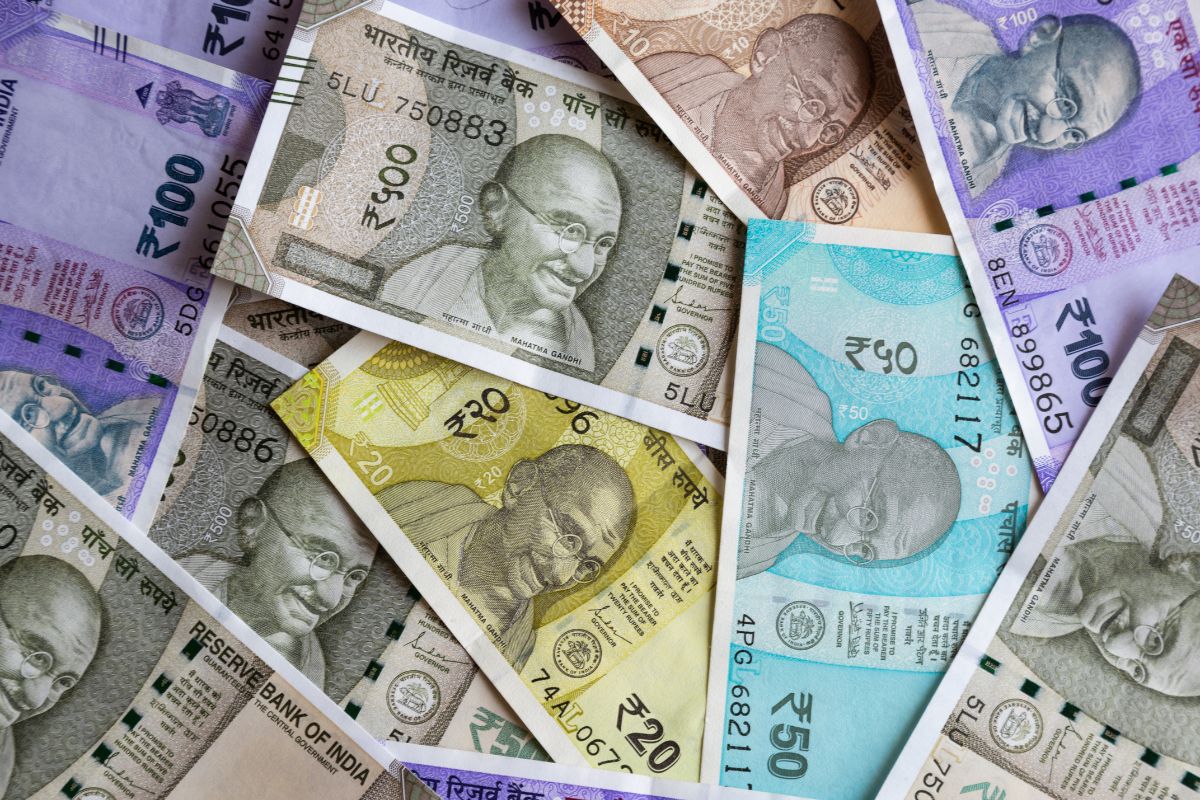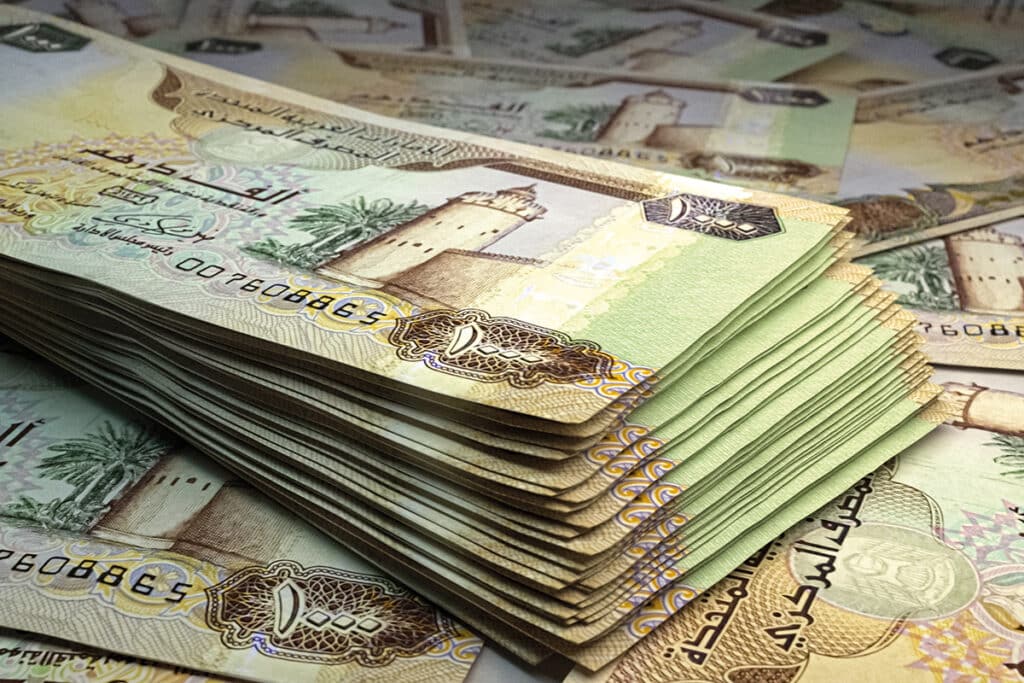Rupee Collapse: UAE NRIs Switch To Dollars As US Economic Outlook Brightens

The UAE is seeing a spurt in USD and AED-denominated savings, triggered by a large-scale switch from rupee-linked investments to American and the Gulf country’s currencies-pegged bank and other modes of investments by non-resident Indians (NRIs) in the country, market experts said.
The USD-AED-linked savings by expat Indians in the UAE is estimated to have seen about a 15 per cent jump in the last six months alone.
The recent plunge in rupee value and the gloomy outlook on the Indian currency’s exchange value against the US dollar in the wake of the ‘Trump Tariff’ onslaught and rising oil prices are driving expat Indians in the UAE – as well as in the region – to shift their savings to USD and AED-denominated products.
Lower risk due to a stable exchange rate against the greenback and potentially higher returns in a predictable currency environment are the factors appealing to expat Indians, especially the high-earning ones, to switch to dollar-dirham-linked saving instruments, experts said.
The Indian rupee was trading at 87.19 a piece against the US dollar in the spot market on Wednesday morning hours, a steep fall from the 84 level just two months ago.
“We are indeed observing a significant increase in NRIs investing in USD/AED-denominated products, particularly among those making substantial investments,” Atul Kathuria, a currency market expert and Business Head – Term Insurance at UAE-based Policybazaar.ae, told Arabian Business.
“This trend is driven by several key macroeconomic factors such as currency stability and interest rates [in USD and AED-linked savings],” he said.
Milind Singh, Co-promoter and CEO of Xare, a Dubai-based fintech operating in the remittances and shared spending segments, said the new trend of NRIs holding their investments in USD and AED also has to do with the changing profiles of the Indian expats in the UAE – and the wider Gulf region.
“More white-collar professionals are moving to Dubai – and the UAE – now, and they look at the ongoing weakness of the rupee and think why have money in India, have it in dollars [or AED],” Singh told Arabian Business.
“Besides, the [rupee] rates have been trending downward for a while now, and it’s not seen any more as a dip but a trend which will continue,” he said.

The UAE dirham is pegged to the US dollar at a fixed exchange rate of 3.6725.
Besides, the US Federal Reserve’s influence on interest rates indirectly impacts the AED, offering potential advantages for investors.
Market experts said UAE’s strong economic growth and stability due to its stable and diversified economy, driven by sectors like oil, tourism and finance, attracts foreign investment and supports the dirham’s strength.
India’s economy, on the other hand, while growing, faces challenges like inflation and fiscal deficit, leading to greater currency volatility.
Mutual funds with investments in equities across the globe, real estate investments, gold and gold ETFs and term life insurance, besides bank term deposits, are cited as the popular AED and USD-linked saving instruments among NRIs.
NRIs favour USD/AED savings products
Sector experts said the trend of USD and AED-pegged savings by NRIs is expected to continue in the near future in anticipation of further strengthening of the US currency – and by extension the AED – due to the ongoing tariff war and the expected growth of the US economy.
With the US economy projected to strengthen, and given its ongoing monetary tightening policies, the US dollar – and by extension, the AED – will likely appreciate against the INR, they said.
The expected US Federal Reserve rate hikes are also expected to drive capital inflows into the US, strengthen the USD, and make currencies like the AED more attractive compared to the INR, experts said.

“As the US economy grows, capital inflows into the US will likely increase due to higher interest rates, improved economic outlook, and more attractive yields for foreign investors. This will strengthen the USD, and by extension, the AED,” Kathuria said.
“In contrast, emerging markets like India face capital outflows when the US offers higher yields and more attractive investment opportunities.
“This, in turn, can weaken the INR further as investors move their money to safer, higher-yielding assets in the US or the UAE,” he said.
India’s economic challenges persist
Market experts said while India continues to be a high-growth economy, its structural challenges such as high inflation, trade deficit, reliance on oil imports, and also vulnerabilities to external economic factors such as oil price fluctuations and capital outflows are likely to put continued pressure on the local currency.
On the other hand, the UAE’s positive trade balance, fuelled by oil exports, contrasts with India’s trade deficit, and any rise in oil prices due to global demand will further strengthen the AED relative to the INR, they said.
Thus, barring any major shifts in global economic dynamics or drastic policy changes, the trend of the AED being stronger than the INR is expected to persist, they pointed out.
Besides, the UAE’s lower inflation rate, due to effective monetary policies, also preserves the purchasing power of AED investments, making savings in AED-linked products more attractive and potentially high-yielding for NRIs, Kathuria said.
“India’s historically higher inflation erodes the INR’s value over time, making AED-denominated investments more attractive for long-term growth,” he said.

Rupee sees 40% depreciation against AED in a decade
Kathuria said there has been an overall growth in investments in the UAE, the jump caused by the growing switch in NRI investments is estimated at 10-15 per cent in the last six months.
Investors are more confident to invest in UAE-based assets that are AED denominated as compared to INR since in the last decade, the rupee has seen a 40 per cent depreciation against the dirham, he said.
Market participants said expat Indians who have been investing in equity markets and equity-related funds are more aware and tend to move to this strategy more.
This investment trend is predominantly observed among NRIs who are already active in equity markets and related funds, they said, adding that they possess a heightened awareness of global economic dynamics and are proactive in adjusting their investment strategies accordingly.
Kathuria, however, said for NRI investors, this trend presents both opportunities and challenges.
“While USD and AED-denominated assets offer stability and potential returns, it’s crucial to consider individual risk tolerance, investment goals, and the importance of diversification.
A well-balanced portfolio that includes a mix of asset classes and currencies can help mitigate risk and optimise returns in the long run,” he said.
Emicool Secures First-ever Green Financing To Boost Sustainable Growth
The liquidity generated will be strategically deployed to accelerate the company’s district cooling projects across t... Read more
UAEs Ruya Becomes First Global Islamic Bank To Offer Shariah-compliant Crypto Trading
Digital Islamic bank ruya teams up with Fuze to offer secure, ethical crypto investments aligned with Islamic financial... Read more
Startups In Abu Dhabis Hub71 Secured $2.17bn In Funding Last Year
Hub71 startups in Abu Dhabi saw massive increase in funding in 2024 as innovation economy thrives Read more
UAE Fintech Pay10 First To Launch On Central Banks Open Finance Framework
The company has acknowledged the Central Bank of the UAE's crucial role in facilitating a responsible and secure rollou... Read more
PayPal Expands In MEA Region With Its Newly Launched Hub In Dubai
Will serve 80 countries in Middle East and Africa from its Dubai Internet City hub; Has signed several deals with regio... Read more
New Board Certifies DMCC Tradeflow As Fully Shariah Compliant
Shariah Supervisory Board appointed to oversee Tradeflow’s Islamic finance offering; Certified fully-compliant with A... Read more

